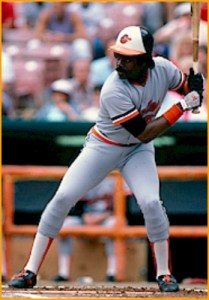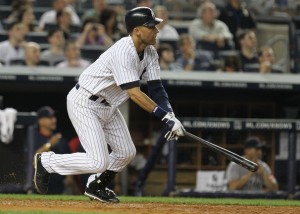Baseball All-Star Selection Process Hasn’t Improved Over Time
Despite continual tweaking designed to make the process as fair and consistent as possible, the selections for the 2011 Major League Baseball All-Star Game follow the history of rewarding past accomplishments and dominant teams while overlooking a number of deserving players.
Selecting the players for the All-Star Game has been a challenge for generations.
The most egregious example of exploiting the system occurred in 1957 when ballot stuffing in Cincinnati led to the Reds having the top vote getter at seven of eight field positions. Eventually, two of the players were replaced in the lineup and fans lost the right to vote for the All-Star starters for slightly more than a decade.
Since fan voting was restored in 1970, the biggest problem has not been ballot stuffing, but instead a tendency for fans to vote some of their favorite players into the lineup regardless of whether they were having the best year of a player at that position.
Some all-time greats, including Brooks Robinson, Rod Carew, Wade Boggs, Reggie Jackson, Cal Ripken Jr., Ozzie Smith and Johnny Bench continued to be selected by the fans even in years when they were clearly not the best player at their position.
The unintended consequence of this desire to see certain fan favorites is that other deserving players don’t get the recognition of being All-Star starters in years when they were obviously the best player at their position.
One such example was first base for the American League during the late 1970s and early 1980s. After moving from second base, where he was an eight time starter, Rod Carew was voted by the fans as the starting first baseman every year from 1976 through 1984.
[poll id=”185″]
While Carew was a great player and Hall of Famer, by the late 1970s he was no longer the best first baseman in the American League. After the Silver Slugger Award started in 1980, Carew never won the honor while Cecil Cooper won it from 1980-82, Eddie Murray won it in 1983 and 1984 and Don Mattingly won the award from 1985-87.

Despite being one of the best first baseman in baseball for over a decade, Eddie Murray made only one All-Star start.
Yet, each of those three greats had the honor of starting an All-Star Game only once. Cooper served as an injury replacement for Carew in 1982, Murray beat out Carew for the starting role in 1985 and Mattingly was selected as the starter in 1987.
In 2011, the best example of a player being selected to the All-Star team based on past success is New York Yankees shortstop Derek Jeter. With a .260 average and 20 RBI, Jeter’s numbers pale in comparison to the best shortstops in the American League and are definitely not All-Star worthy. However, assuming he is healthy enough to play, Jeter will be starting for the sixth straight year and eighth time in his career.
Overall, the fans generally do a better job with their picks than either the managers or players, but selecting aging players like Jeter is definitely the most common misstep fans make in selecting All-Stars.
The Managers from the previous years World Series have been involved in selecting at least a portion of the All-Star rosters since 1935 and at various points there have been examples of managers overloading the team with their own players.
After both Bob Brenly and Joe Torre made questionable selections in 2002, the system was changed to provide players with the ability to select some of the reserves, while the managers picked the remaining players.
However, both of these methods created some questionable choices in 2011.
Among the picks by the players was New York Yankees catcher Russell Martin, who is hitting .222 with 10 home runs and 34 RBI. In fact, it took a late surge by Detroit Tigers catcher Alex Avila (.298 average, 10 home runs, 46 RBI) to keep Martin out of the starting lineup.
It seems illogical that Martin and Jeter will both be representing the Yankees in the All-Star Game, but two legitimate All-Stars on the team, C.C. Sabathia (11-4, 3.05 ERA) and Mark Teixeira (25 home runs, 65 RBI, .243 average) will not be making the trip.
While American League Manager Ron Washington did a pretty good job in using his selections and didn’t overload the squad with Rangers, National League Manager Bruce Bochy made the kind of “homer” choices that in my opinion could justify completely taking the manager out of the selection process.
Yes, the Giants won the World Series a year ago, but the point of the All-Star Game is to select the best players in the current season.

San Francisco Giants manager Bruce Bochy seems to have selected his pitching ace Tim Lincecum for the All-STar team based primarily on his performance in the 2010 World Series.
Bochy used three of his five pitching selections to choose members of his own pitching staff. Surprisingly, of the three the one who was most deserving is the least known member of the staff and wasn’t part of the World Series team.
Before 2011, Ryan Vogelsong last pitched in the majors in 2006. However, his 6-1 record and 2.13 ERA are definitely deserving of a spot on the squad.
It is hard to say the same thing for both Matt Cain (7-4, 3.02 ERA) and Tim Lincecum (6-6, 3.04 ERA). Though both pitchers were instrumental in bringing the World Series to San Francisco in 2010 that is no reason they should take spots from more deserving pitchers on the 2011 All-Star roster.
Among those who easily are having better 2011 seasons include Tommy Hanson of the Braves (9-4, 2.62), Ian Kennedy from Arizona (8-2, 3.01) and Jeff Karstens (6-4, 2.65) of Pittsburgh. Even Kyle Lohse (8-5, 2.97) from St. Louis seems to be more deserving of a spot on the roster than Cain or Lincecum. And since ERA seems to be given greater weight in recent years than win-loss record, you could even make a case for Jordan Zimmermann (5-7, 2.82) of the Nationals.
While Bochy could possibly have made a case for selecting one of his two pitching stars, picking both of them instead of the other pitchers who are having better seasons just reeks of favoritism and will probably lead to some other new rules on how players are selected.
It is funny that even though the All-Star Game has actually meant something since it was decided in 2003 that the winner would have home field advantage for the World Series, the term “All-Star” seems more trivial than ever.
While I am a fan of having a representative from each squad, the current setup often keeps the best player from some teams at home while someone whose position better fits the roster gets the call.
Among the examples of that this year are the Kansas City Royals and Pittsburgh Pirates. Relievers Aaron Crow (2-1, 1.36 ERA) and Joel Hanrahan (1.41 ERA, 24 saves) are having quality seasons, but Alex Gordon and (.298, 10 HR, 46 RBI) and Andrew McCutcheon (.294, 12 HR, 46 RBI, 52 runs) are everyday players who are unquestionably the leaders of their teams and deserving of being called All-Stars.
Since MLB has seemed willing to continually tweak the system in recent years, hopefully they will eventually figure out how to ensure there are enough pitchers to play more than 10 innings while still picking some of the top position players from teams that typically get only one representative.

pretty useful stuff, all round I picture this is worthy of a bookmark, thank you
I experimented with looking at your web site on my cellphone and the format doesnt seem to be correct. Might want to check it out on WAP as well as it seems most cell phone layouts are not really working with your web page.